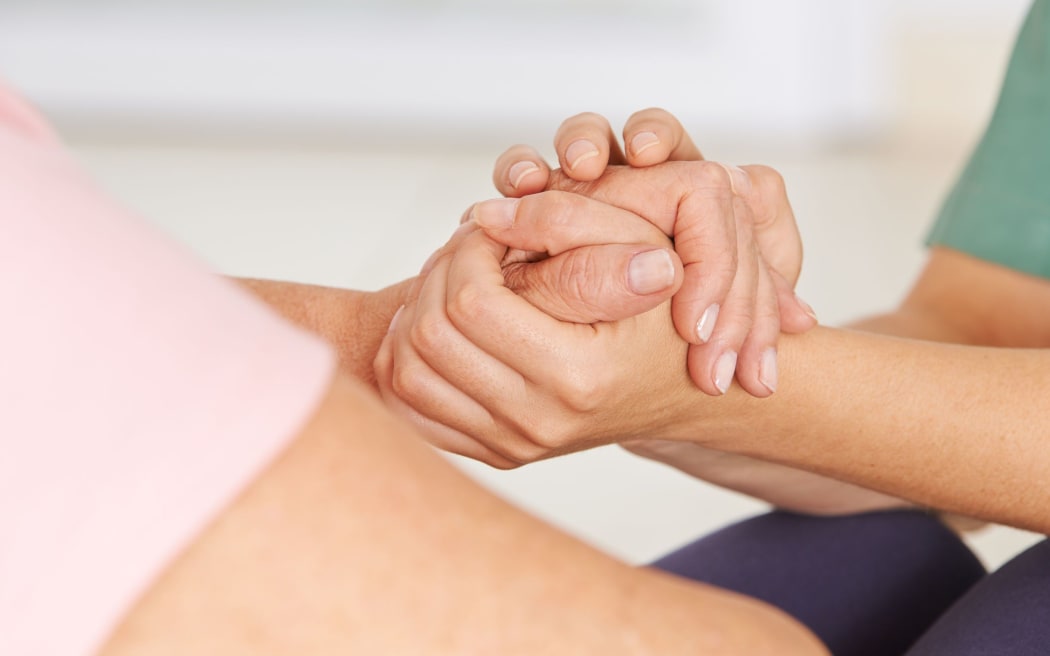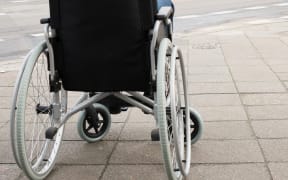By Chris Ford*
Opinion - The preliminary voluntary euthanasia vote result has been feared by a significant section of the disability community for some time, writes disability advocate Chris Ford.

Photo: 123rf.com
New Zealand voters have probably rendered a significant yes vote in favour of voluntary euthanasia. I say probably because I am writing this on the night before the End of Life Choice (EOLC) Act results are announced on the basis of the Curia Research poll which shows that over 61 percent of Kiwis have voted to confirm their support for the law.
If true, then this result will be what a significant section of the disability community have feared for some time.
Ironically, it also comes the same week as Statistics New Zealand released figures on the well-being of disabled people which showed that we are considerably more disadvantaged than non-disabled people in a number of areas including in average income earned and employment participation.
There has been significant concern that the new law will see a disproportionate number of disabled people and people with non-terminal health conditions opt for voluntary euthanasia, especially if they find that they are not getting the support they need to live quality lives.
I state this as while it is important to acknowledge that the law was amended to ensure that only terminally ill people with a diagnosis of less than six months to live will be eligible, and that living with disability or mental distress would not be sole grounds for eligibility, there are still grey areas which need to be addressed. While I am no lawyer, I can see, for example, that the term 'disability' is not clearly defined. This means that the courts may be called upon to determine who is eligible and who isn't at a very early stage and this will impact on both how the law is applied and as to whom it can be applied to.
In this respect, some of the most prominent campaigners against the legislation, such as Waikato woman Kylee Black, lives with what is effectively a terminal condition which also, as she has stated herself, sometimes impacts on her mental health. Therefore, a person who ends up in a similar situation to Kylee could be given a terminal diagnosis of less than six months to live and then begin to experience pain. Shortly afterwards, that person could become depressed, which is often a part of the natural grieving process that people with newly acquired impairments or illnesses, such as cancer, go through.
That is why assessing practitioners will be faced with real dilemmas which may mean that some right decisions could be made but also some wrong ones. Assessors may have to decide whether they give a higher weighting to a person's terminal diagnosis, which would make them eligible, or their depression diagnosis which would make them not.
Proponents of the law, such as its parliamentary champion, David Seymour, have even said that they cannot rule out the possibility of wrongful deaths occurring under the legislation. So, what if such a wrongful death is of a person with a long-term impairment or health condition which would have rendered them otherwise ineligible? What would happen if, despite all the best detection efforts, that a person was found post-death to have been euthanised due to unseen pressure by relatives or others?
These and other questions remain about the new law.
Ultimately, I acknowledge that the electorate has spoken and that the law must go into effect in 12 months. Before it does, Parliament must act to further tighten the legislation in a number of ways through, for example, introducing a bright-line test to fully define disability (preferably using the UN Convention on the Rights of Persons with Disabilities definition); clarify the meanings of advanced age, irreversible decline in physical capability and unbearable suffering; require the signature of second independent witnesses to verify that requests are not being made under duress; and ensure that all personnel involved in the EOLC process undergo mandatory disability responsiveness, human rights and abuse awareness training.
Similar safeguards have been adopted by other jurisdictions such as Victoria in Australia and Oregon in the United States which also have voluntary euthanasia laws. If these places have tighter laws, then why shouldn't New Zealand?
It is now up to the incoming Parliament to ensure that disabled people and other at-risk groups, for example older people, are as protected as we can be. Otherwise, I'm afraid that myself and other disabled people who voted no will have ongoing concerns about the law and its impact on the disability community going forward.
*Chris Ford is a Dunedin-based disability advocate, writer and researcher who identifies as a disabled person. He works as senior kaituitui (community networker) for Disabled Persons Assembly New Zealand and has been an independent commentator. This article reflects his own views.





